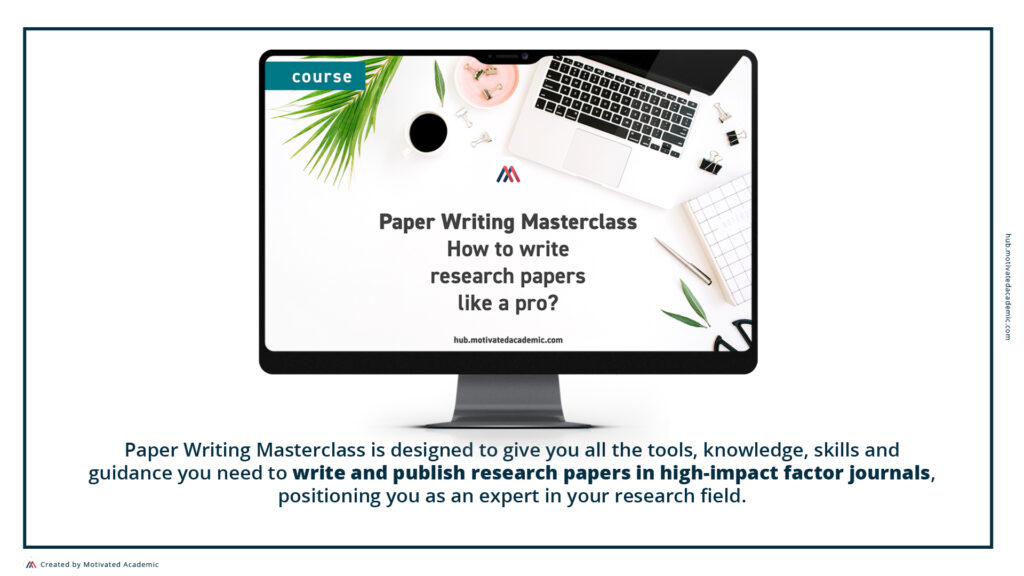A literature review is an inherent part of each research project. This is because it helps you to understand the relevant background of the broader research area and the associated political, environmental, societal, technological and economic contexts.
Why is literature review important? Do I have to include a literature review in my research proposal? Do I have to do it at the very beginning of the project?
These were the main questions that revolved around my head when I was at the very beginning of my academic career. And it seems that it was not just me asking such questions. I often hear them in discussions with current PhDs and others doing research.
It may seem that the literature review is a daunting challenge. I have seen recommendations to outsource your literature review or leave it until the very of your research project. It is sometimes regarded as an unnecessary activity that “prevents” you from doing the actual research, which may be draining your motivation. Read how to stay motivated here!
If you think in this way, I want you to ask yourself the following question and answer it honestly:
“Do I want to contribute towards the scientific discovery, or do I just want to get a PhD title?”
Believe me, there is a massive difference in the attitude between these goals.
A comprehensive literature review is THE FOUNDATION of your research project because it enables you to:
- understand the context and fundamental knowledge associated with your research;
- understand what work has already been done in the area of your project;
- notice any trends and correlations in the past work;
- determine research gaps and underlying challenges that need to be solved;
- identify the best (or worst) approach to tackle particular challenge; and finally,
- scope your project, clearly define your aim and objectives that when completed, will push the boundary of knowledge!
I trust you now agree with me that the literature review is essential! When executed competently, it will set a clear direction for your project and enable you to complete it on time and to a high quality.
Now, to reduce the burden associated with searching for the literature and organising your references, there are several tools that will improve your productivity when writing a literature review for your project.
Below I present the tools that I currently use (or used to use) when writing a literature review. I hope you will find it useful.
If there are any tools that you use to do a literature review, please share them in the comment!
Table of Contents
Where to start the literature review?
As already indicated in its name, a literature review aims to survey or overview the published literature in your chosen area of research.
When performing one, you will also efficiently synthesise the information in that literature in an organised manner and critically analyse the published information and data. Such a critical analysis will help you identify and gaps, limitations and contrasting points of views.
I want to emphasise here that in academic writing, the peer-reviewed information carries the most value and should be a primary source of your information. But there are also other sources that you may, and sometimes should consider.
Therefore, understanding where to look for the literature is crucial to performing the literature review efficiently.
Scopus
Scopus (owned by Elsevier) is the largest database of peer-reviewed literature that includes titles, abstracts and citation information. It is a comprehensive source of the literature in science, engineering, technology, medical sciences, social sciences, and art and humanities.
It includes approximately 38,060 journals and allows you to understand the journal standing by presenting a total number of citations, cite score, and journal ranking in a specific research area.
Below you can see how you can assess the quality of the source on an example of Applied Energy, one of the prestigious journals that are highly regarded in my field of study.
An exciting feature of Scopus is that you can set up regular alerts for specific search strings. These will get delivered directly to your mailbox!
Web of Science
Web of Science is an independent platform run by Clarivate Analytics (Thomson Reuters) that gives you access to multiple databases with comprehensive citation data for 12,000 high impact journals and 160,000 conference proceedings.
Similarly to Scopus, it covers a broad range of research areas, from social science, arts and humanities, through science to engineering.
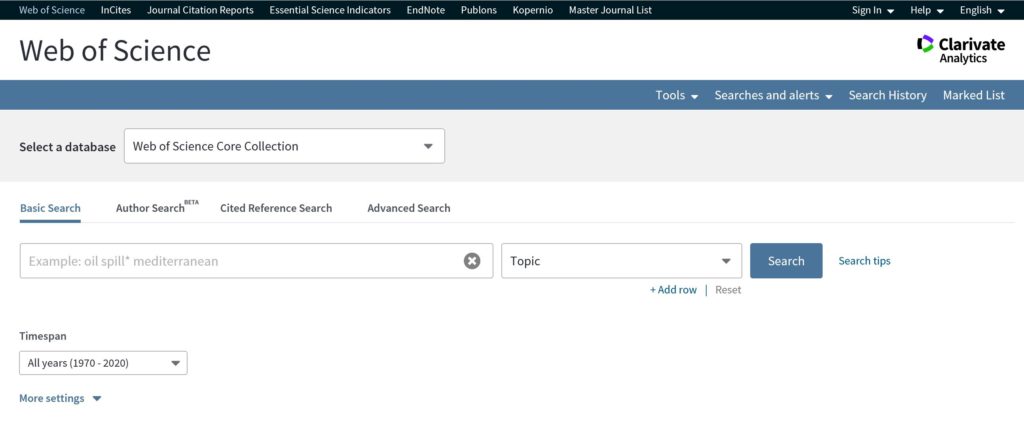
A useful feature is that in addition to information on what scholarly papers cited your work, it gives you an indication on where your research was shared or used (i.e. as a reference on Wikipedia!).
Google Scholar
Google Scholar is very similar to the conventional Google search engine, but its primary aim is to provide a search for academic literature.
In addition to peer-reviewed literature, you may find there doctoral theses and master dissertations, white papers, technical reports, preprints, books and other documents from scholarly websites.
I want you to be aware that there is a risk that some of the documents in the Google Scholar search results may not be peer reviewed or accurate. Therefore, as always, be critical in your assessment of the literature.
An interesting feature of Google Scholar is the option to follow the academics whose work is relevant to your project.
Most of us use Google on a daily basis. I believe you have already tried to use it for searching scholarly sources for your literature review. You can use it in a similar way to Google Scholar.
However, you may be directed to other depositories, publisher websites and grey literature. In my research, I tend to use it when I want to explore a particular topic, without going into many details.
ResearchGate
ResearchGate is a professional network for scientists and researchers, with over 17 million members worldwide. It aims to support knowledge sharing, networking, and collaboration.
It can be seen as an extensive database of papers, presentations and information on projects in your research area. It also stimulates academic discussion via the option to ask questions and help others to solve their problems.
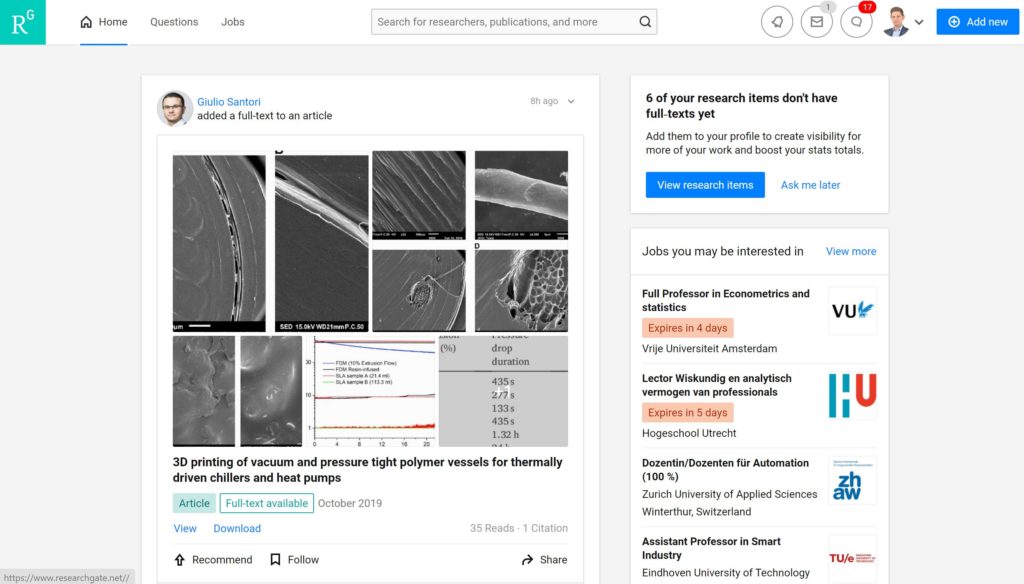
An interesting feature of ResearchGate is the fact that you can simply request a copy of the academic paper or a conference paper directly from the author if it is not available elsewhere.
Moreover, you may also find job opportunities that fit your profile!
Academia
Academia is a professional network for academics to share research papers. At the time of writing this blog, over 123 million academics already signed up to this platform.
Similarly to ResearchGate, Academia enables you to download papers that are not available elsewhere and see who is reading your articles.
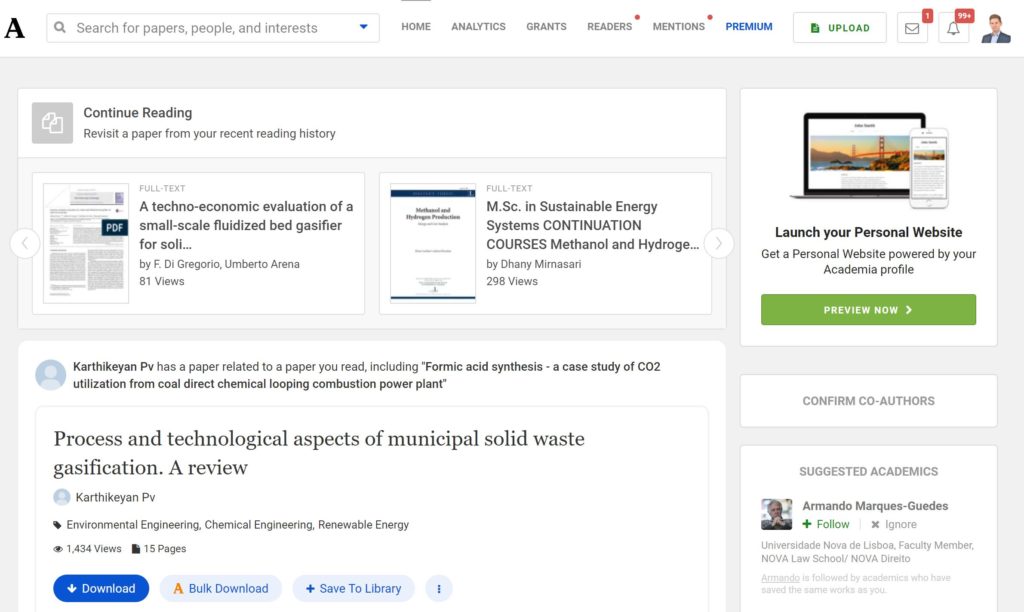
ArXiv
ArXiv is a popular preprint service in the fields of physics, mathematics, computer science, quantitative biology, quantitative finance, statistics, electrical engineering, systems science and economics.
It currently comprises about 1.7m of scholarly articles. Although you may access these manuscripts for free, it is essential to highlight that, most likely, these have not been peer-reviewed or are currently being peer reviewed.
Preprints
Preprints is a multidisciplinary platform for sharing preprints in vast areas of science, technology, engineering, art and humanities.
By sharing the early version of research outputs, you may stay more up to date with your research area. As in the case of ArXiV, when writing your literature review bear in mind that these sources are not peer-reviewed.
How to write the literature review efficiently?
As you start exploring the literature in your research area, you should ensure that you can keep track of what you have read and organise the research data. This will help you to increase the efficiency of writing the literature review!
There are lots of tools available that can help you to become more productive when writing your literature review and your papers overall.
Here are the tools that I use to manage my literature sources when I write the literature review for my research.
Mendeley
Mendeley is a free reference management tool that can help you to capture the bibliographic information of the articles you read, keep their copies in PDFs, highlight and comment on the most relevant information.
It is easy to integrate with browsers for data capture and MS Word for adding the references into your text as you go along writing the literature review. You can say goodbye to juggling the references manually and wasting hours of your valuable time just to re-number all references. And it will generate bibliography for your literature review automatically!
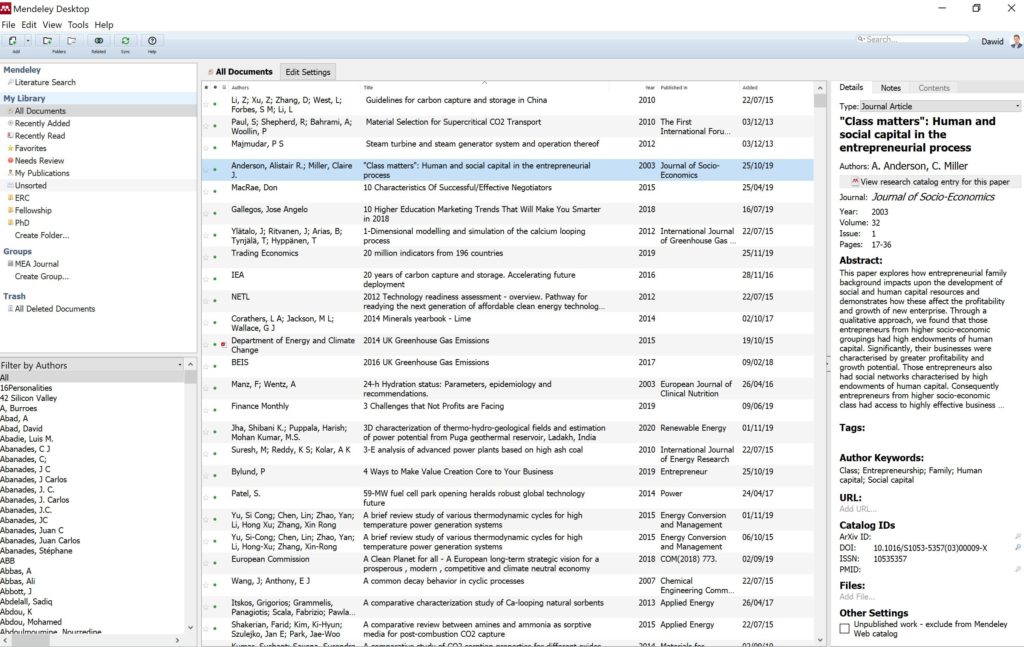
It is also a professional network that will support your networking and collaboration activities and will enable you to discover the latest research. Importantly, you can directly import that research to your reference list!
Endnote
Endnote is a commercial reference management tool which enables you to capture, manage and organise your references when writing your literature review.
It does pretty much similar work as Mendeley, but its free version is somewhat limited.
MS Excel
MS Excel is a tool within MS Office where you can use a spreadsheet for calculations, data analysis, visualisation, and programming.
As it lets you create tables, it is a perfect tool for collecting, organising and analysing data for your literature review.
If you keep your spreadsheet updated throughout your literature review, you may even include it in your final review as a summary table. These are very handy for the readers!
Google Sheets
Google Sheets is a similar tool to MS Excel but is available free of charge with your Google account. It will be equally useful for your literature review, as it lets you prepare summary tables and analyse your data. The only difference is that it runs only in Cloud.
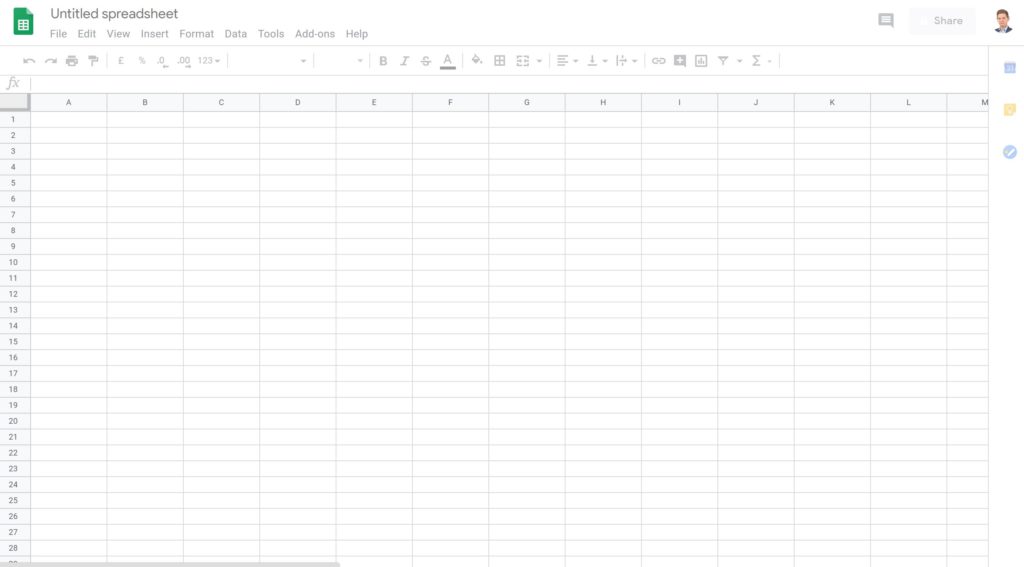
Key takeways…
I want you to remember that the literature review does not need to be a tedious exercise that you “have to do” in your project. This part of your research project will help you to scope and drive your project forward.
The research tools I included here are the ones I use in my work. I trust you found the list useful and will use some of them to improve your productivity!
If you are using research tools that are not listed here, I would be more than happy to hear about them. Make sure you share them in the comment!

